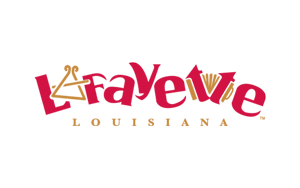Podcast: Play in new window | Download (Duration: 44:02 — 60.5MB)
Dr. Joseph N. Abraham, the author of Kings, Conquerors, Psychopaths: From Alexander to Hitler to the Corporation, shares insights about his latest book published by the UL Press, in this podcast episode of Discover Lafayette.
Dr. Abraham graduated from UL-Lafayette and earned his M. D. at Tulane University. An E. R. doctor for over 30 years, Dr. Abraham previously authored Happiness: A Physician/Biologist Looks at Life (2000) and peer-reviewed articles in Evolutionary Biology.
Kings, Conquerors, Psychopaths gives a fascinating interview of powerful conquerors throughout the past 10,000 years and you are guaranteed to learn much about history in the process! This book provides great insight into historical patterns of power and dominance at all levels of government, religion and corporate existence.
Of particular interest to historians of WWII who will read this book: the relationships between well-known titans of U. S. corporations in the 1940’s and the Nazi regime are disturbing and provide a reason to rethink what you know about commerce and the economic benefits of war. The point made by Dr. Abraham is that this is nothing out of the ordinary in authoritarian societies but reflects the patterns of behavior throughout history.
Dr. Abraham discusses the motivation behind his more than 20 years of research on the subject of authoritarianism or favoring blind submission to authority. In explaining authoritarianism’s vertical hierarchy or power structure, Dr. Abraham contrasts this blind submission to authority to Acadiana’s more egalitarian horizontal hierarchy where people work together to solve problems and help one another get ahead.
These powerful Acadian influences are historical patterns of strength which are a bedrock of our region’s Cajun and Creole heritage. Dr. Abraham explained in our interview that most people are unaware of the migration of the early 17th Century French settlers in Port Royal, Nova Scotia, (which today comprises eastern Maine and the Canadian provinces of New Brunswick, Nova Scotia, and Prince Edward Island) in 1604, which preceded the Mayflower contingent who traveled to “America” in 1620 and who arrived a full 16 years earlier. These Colonial French began the first New World “Republicans” in the estimation of Dr. Abraham.
FYI: “Republican” is defined as”the idea that each person is responsible for their own place within society. The party believes that the government’s role is to enable the people to secure the benefits of society for themselves, their families, and for those who are unable to do so for themselves. Republicans believe in limiting the Government’s intervention in the work of the individual towards prosperity. The government should only intervene when society cannot function at the level of the individual. This also means that the party believes in keeping the government as close to the individual as possible, and should be focused mainly on the state and community level, not centered at a federal level.” (https://www.republicanviews.org.) We’ve seen this locally with the incredible Cajun Navy and others who step up in times of need in catastrophic devastation where the government can’t immediately fill the void that neighbors and community volunteers can as they assist one another.
Did the Acadian experiment with democracy and early republican ideals influence the early founders of this country?? Dr. Abraham did state that John Mack Faragher, director of the Howard R. Lamar Center at Yale University, has opined that the founders of the United States of America knew of the Acadian egalitarian form of government rule but this has never been acknowledged in historical documents, and in fact, there is a “deafening silence” when scholars discuss this issue.
As an aside, Joe Abraham is a great supporter of our university. He collected memorabilia on Southwestern Louisiana Institute (later, the University of Southwestern Louisiana; now the University of Louisiana at Lafayette) which is categorized as Collection 392. A large part of the collection deals with sports. Dr. Abraham truly savors history and our community is greatly enriched by his presence and support.




